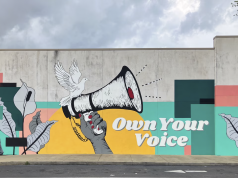By The Rev. Jesse Jackson Sr.
Omicron – the new COVID-19 variant – is now on the march. While southern Africa appears to be its epicenter, countries across the world, including Britain, Canada, Australia, Israel and many others, now report cases of the new variant. Dr. Anthony Fauci calls it “inevitable” that it will come to or is already in the U.S. We know the variant is very contagious, but still unknown is how severe it is, or how resistant to vaccines it will be.
The reason we know about Omicron is that South African scientists detected it early and their government notified the world immediately. Sadly, instead of being rewarded, South Africa is now punished for being responsible, with the U.S. leading a range of countries in slapping travel restrictions on those coming from South Africa and other African countries – without offering any economic assistance to make up for the losses imposed.
These travel bans are popular politically, but ineffective medically. We saw that in relation to the original COVID-19 outbreak. Former President Donald Trump restricted travel from China, but the ban did not apply to American citizens, and it was not paired with wide-scale testing at the border and throughout the country. The virus had already escaped China and European travelers brought it to the U.S. The ban is a wall, but a wall cannot stop an airborne disease.
President Biden’s ban promises to be equally ineffective. It also isn’t linked to aggressive testing and tracking at the border and throughout the country. Omicron is already spreading in countries not under travel restrictions. This is, as one writer noted, pandemic theatrics, not public health.
Less than 4 percent of the population of Africa has been vaccinated. The rest are in desperate need. They do not need a travel ban. They need to be traveled to, with medicine and public health infrastructure. We need to vaccinate them, not ban them.
This mistreatment is both unjust – and foolish. The poorer nations of Africa have the most health needs – and yet have the least access to vaccines, testing and treatment.
We cannot ignore them. The modern globe is intricately connected by travel, trade, tourism, migration and more. Global pandemics spread even before they are noticed sufficiently to spark public response. To counter a global pandemic, the entire globe must be mobilized and involved. If countries are ignored or left out, they can become incubators of new variants that sweep the world. The threat is global; the response must be global.
Yet, as the international director of the World Health Organization noted in February, 2.5 billion people in the 130 poor countries in the world have not been vaccinated. The 85 poorest countries won’t see mass vaccination until 2023. As he noted, “the humanitarian cost is unforgivable – and self-defeating, as each infected person is a potential source of new strains.”
Broken Promises
The repeated promises that vaccines would be made available to poor countries have been broken. Neither the vaccines nor the resources needed to build systems able to deliver them have been provided. Drug companies, reaping massive profits from vaccines largely developed with public funds, have fought to retain their monopolies and resist efforts to make vaccine production available across the world.
South Africa suffered this treatment before in relation to the treatment of AIDS. The drug companies, protected by rich nations, refused to let less expensive generic versions be manufactured and distributed. They even sued the Nelson Mandela government in South Africa when it acted to allow importation of generics. Only overwhelming global outrage forced the drug companies to shelve the suit and cut a deal.
This week, more than 2 million nurses from 28 countries called on the United Nations to investigate rich countries – naming the European Union, Switzerland, the United Kingdom, Singapore and Norway – who have blocked the waiver of patents for coronavirus vaccines. Sensibly, Joe Biden aligned the U.S. on the side of the waiver.
Decrying the failure of drug companies and governments to ensure that “critical treatments and vaccines are distributed equitably,” the nurses’ statement notes that this is not only unjust, but dangerous, opening space for the development of new variants that could “pose a dire risk to people across the world.” Even as they filed their protest, a meeting of the World Trade Organization’s Trade Related Aspects of Intellectual Property Rights Council was postponed because of the continued division over making vaccines widely available.
No one is safe until everyone is safe. African lives are as precious as the lives of those who live in wealthy countries. In the modern world, borders can’t be sealed and walls won’t stop the spread of pandemics. Now more than ever, we are, as Dr. Martin Luther King taught us, “caught in an inescapable network of mutuality, tied in a single garment of destiny. Whatever affects one directly, affects all indirectly.”
We need to rethink our real security priorities. Instead of squandering hundreds of billions on a new arms race with China, we should be joining China and the rich nations of the world together to build the public health capacities needed across the world, while mobilizing to make vaccines, treatments, masks, and other protections universally available. Instead of letting drug companies ration drugs by price, we should be enlisting them – as we did private companies in World War II – to share vaccines and build production capacity across the world.
We don’t know yet how much of a threat Omicron poses. We do know that the COVID-19 pandemic isn’t over; that death is still on the march, and that new variants will germinate in areas where people are not protected. Hunkering down, putting profit over people won’t get it done. Instead of banning travel from Africa, President Biden should be shining the light on Africa and leading the effort to reach out.
The Reverend Jesse Louis Jackson, Sr., founder and president of the Rainbow PUSH Coalition, is one of America’s foremost civil rights, religious and political figures.




